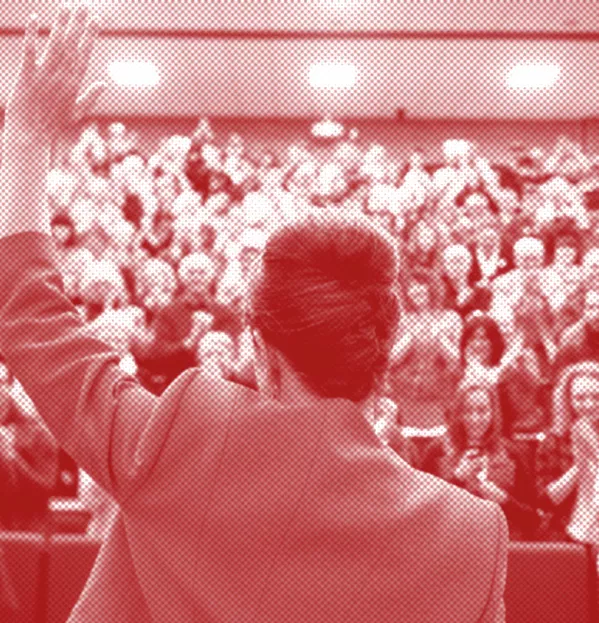A headteacher’s guide to politics

Trading the education chalkface for a seat in the House of Commons used to be fairly common practice. Back in 1997, there were 126 former educators representing their communities as MPs, according to a recent parliamentary research briefing, although that number had dwindled to just 32 by the end of 2015.
But the trend is coming back. In the 2017 general election, there was a surge in former teachers taking to the campaign trail - and winning. Ex-primary school teacher Laura Smith defeated former children’s minister Edward Timpson in Crewe and Nantwich; maths and physics teacher Layla Moran unseated health minister Nicola Blackwood in Oxford West; and former teacher and union activist Stephanie Peacock succeeded one-time shadow culture secretary Michael Dugher in Barnsley East.
Given these recent victories, it is clear that politicians could learn a thing or two from teachers about how to get elected. But could this go both ways? Are there lessons that headteachers could learn from the heads of political parties?
Absolutely, says Professor John Paul Rollert, who runs a course at Harvard University titled Leadership Lessons from Modern Presidential Politics. It all starts, he believes, with learning the art of effective communication.
“Good public relations is absolutely essential, not only to communicate the vision you have but to give people a sense that there’s not some secret mission you’re trying to carry out,” he explains. “You need to let your different stakeholders - parents, students and other members of the teaching faculty - know that you’re inviting democratic participation from them.”
Sir Tim Brighouse has an insider’s understanding of education and politics; although now retired, he was a teacher and deputy head before becoming schools commissioner for London and chief education officer for Oxfordshire and Birmingham.
Be true to your word
A fundamental feature of both roles, he says, is that you will be scrutinised on whether you stay true to your word, and heads can look to politics for clues about how to get this right. “If you’re running a school, you have to be conscious that people are looking for that match between what you do and who you are,” he says. “There has to be consistency between what you say and what you do.
“You need to think about who your most important stakeholders are and keep them in mind. For school leaders, it’s the staff, because if they aren’t doing a good job, no good will come of it.”
Just as important as saying the right thing, though, is listening to people, says Rollert. He suggests that heads could learn from Hillary Clinton; she may have missed out on the US presidency but she managed to rally huge support by putting herself in front of crowds and asking them to tell her about their lives and their worries.
“She went on a ‘listening tour’ of upstate New York, particularly to the areas that would be most distrusting of her,” Rollert explains. “She invited people to come and share their concerns and what they would like her to be working on as a senator. It was all about lowering the wall, being humble and showing respect for people.”
What not to do
However, if headteachers are looking for lessons in professional development, it is perhaps just as useful to look at examples of less-than-effective political manoeuvring to get ideas about what to avoid.
“It’s important that our political leaders, like headteachers, act with integrity, humility and a willingness to learn,” says Rae Snape, headteacher of The Spinney Primary School in Cambridge.
“[Former prime minister] David Cameron introduced a referendum on the UK’s continuing membership of the EU despite supporting EU membership,” she says. “Theresa May had been a staunch Remainer but, irrespective of her prior convictions about what would be best for the country, is determined to pursue a course of action regardless of what many people advise.”
Labour leader Jeremy Corbyn, meanwhile, was widely criticised for remaining on the fence in the run-up to the Brexit vote for fear of alienating supporters.
However, Brighouse suggests that school leaders have a big advantage over politicians because they don’t have to obsess about their success in terms of performance in the polls. So he advises headteachers not to be overly concerned with popularity.
“Some of the very best headteachers I’ve known have said they aren’t worried about being liked,” he says. “There’s a difference between being liked and being respected. Some do, apparently effortlessly, command huge respect - it may seem effortless but I’m not so sure it is. It’s by their efforts, day in and day out, that they win that respect.”
Ultimately, Brighouse says, school leaders, like politicians, should remember that they will be judged by history. “People say that leaders are popular less often at the time and more often in retrospect.
“That’s because people appreciated how good these leaders were at matching what they did with what they said. The leaders who really win out are the ones who gain our respect through their actions.”
Zofia Niemtus is a freelance writer
You need a Tes subscription to read this article
Subscribe now to read this article and get other subscriber-only content:
- Unlimited access to all Tes magazine content
- Exclusive subscriber-only stories
- Award-winning email newsletters
Already a subscriber? Log in
You need a subscription to read this article
Subscribe now to read this article and get other subscriber-only content, including:
- Unlimited access to all Tes magazine content
- Exclusive subscriber-only stories
- Award-winning email newsletters